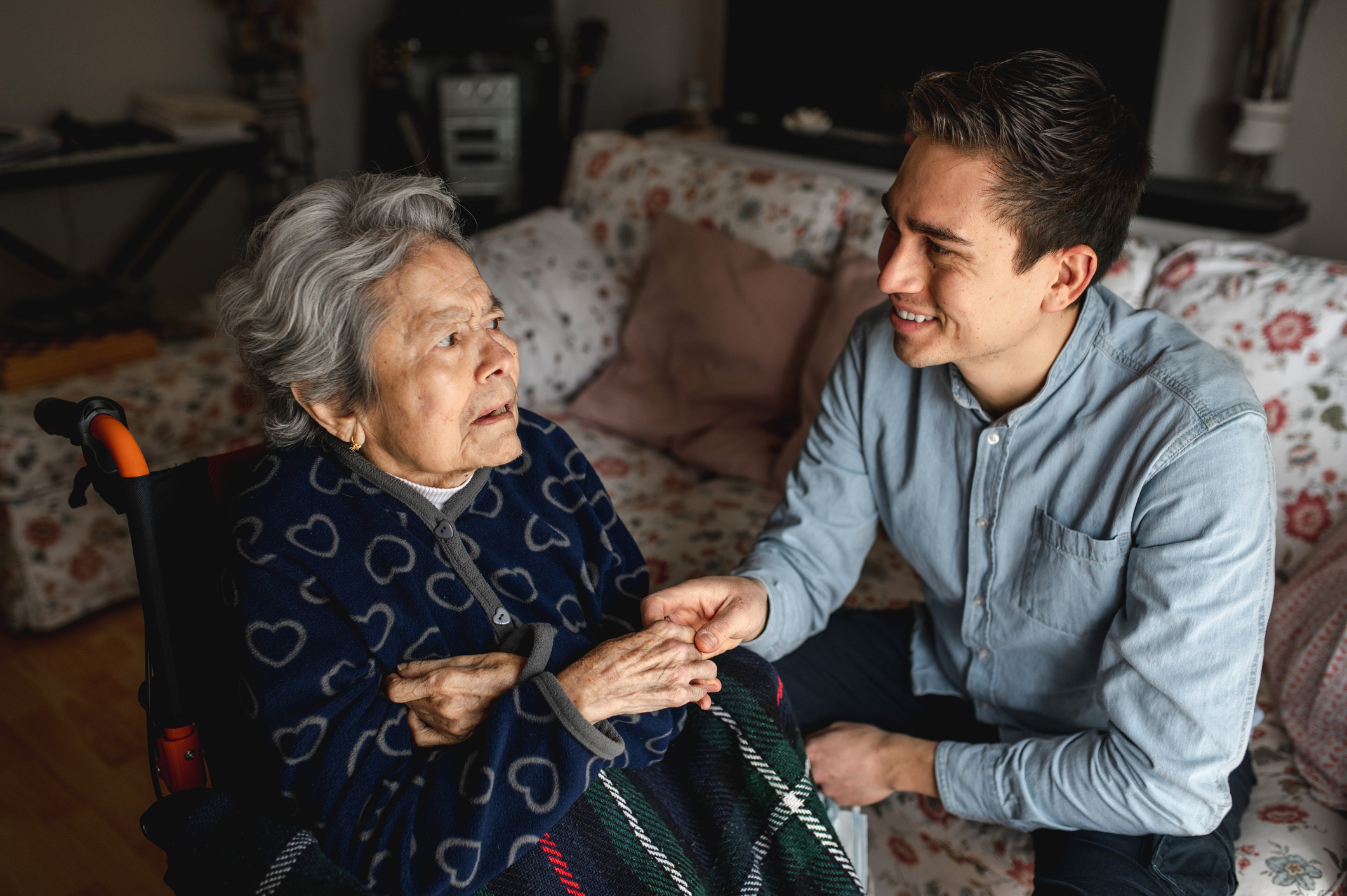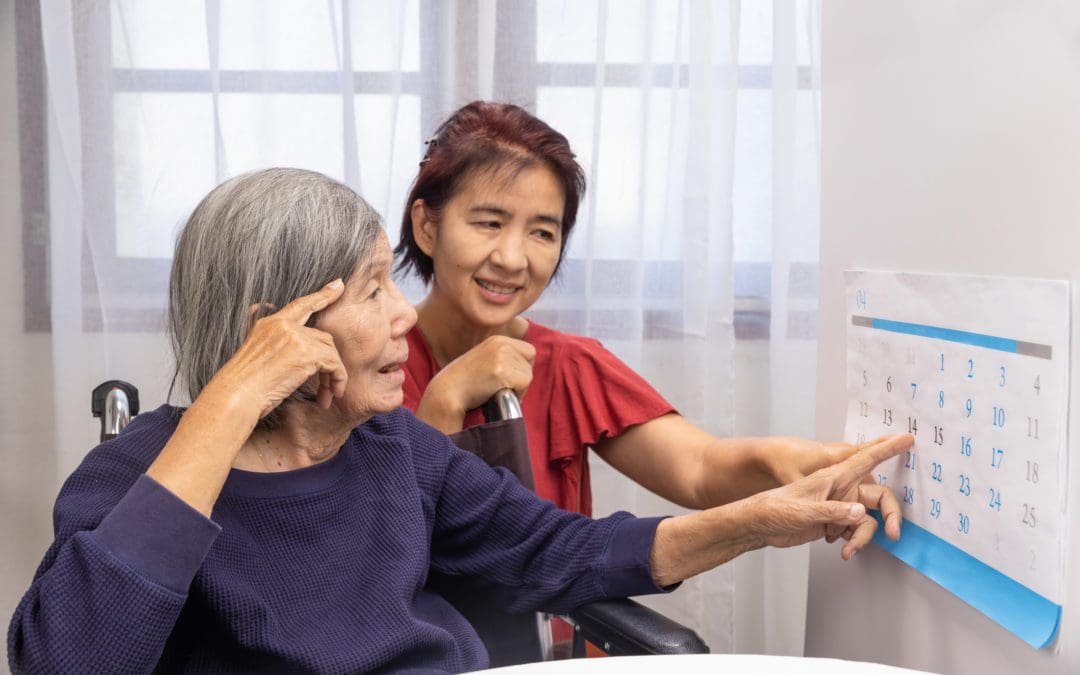Dementia is a general term used to describe a decline in mental ability. There are different types of dementia, each with its own set of symptoms. In this blog, we will discuss the different forms of dementia and how to deal with them. If you or a loved one is affected by dementia, it is important to know as much as you can about the condition because with knowledge comes power!
Contents
What Is Dementia?
Dementia is a decline in mental ability that affects daily life. It can lead to problems with memory, thinking, communication, and mobility. Dementia is not a specific disease, but rather a term used to describe a range of symptoms. There are different types of dementia, each with its own set of symptoms. Below is the breakdown.
What Are The Different Forms Of Dementia?
As mentioned above, dementia is not a specific disease but rather a term used to describe a range of symptoms. The different forms of dementia are the following:
Alzheimer’s Disease
This is the most common form of dementia, accounting for 60-70% of cases. It is a progressive disease that damages and kills brain cells. Symptoms include memory loss, confusion, mood swings, and problems with speech and movement.
When dealing with Alzheimer’s disease, it is important to seek early diagnosis and treatment. There is no cure for Alzheimer’s, but treatments are available that can help delay the progression of the disease.
Vascular Dementia
This type of dementia is caused by problems with the blood vessels in the brain. It is the second most common form of dementia, accounting for 20-25% of cases. Symptoms include memory loss, confusion, problems with balance and coordination, and changes in mood or behavior.
There is no cure for vascular dementia, but treatments are available to help manage symptoms.
Parkinson’s Disease
This type of dementia affects around one million people in the United States. It is a neurodegenerative disease that causes problems with movement and balance. Symptoms include tremors, trouble walking, and changes in speech and handwriting.
At present, there is no known cure for Parkinson’s Disease, but treatments are available to help manage its symptoms.
Lewy Body Dementia
This type of dementia accounts for up to 20% of cases. It is a neurodegenerative disease that causes problems with movement, balance, and vision. Symptoms include tremors, changes in mood or behavior, and difficulty walking.
There is no known cure for Lewy Body Dementia at this time. However, just like with Parkinson’s Disease, treatments are available to help manage its symptoms.
Frontotemporal Dementia
This type of dementia is caused by damage to the frontal and temporal lobes of the brain. It results in changes in behavior, personality, and language skills.
There is no known cure for frontotemporal dementia at this time. To ease its symptoms, patients are typically prescribed medications to help with things like agitation and aggression, depression, and problems with swallowing.
What Causes Dementia?
The cause of dementia is unknown in most cases. However, there are some factors that may increase the risk of developing dementia, including:
Age
The risk of dementia increases with age. This is because the brain naturally declines with age. Usually, people 65 and older are at the greatest risk of developing dementia.
Family History
A family history of dementia increases the risk of developing the condition. This is because some forms of dementia may be hereditary. Examples include Alzheimer’s disease and Huntington’s disease.
Brain Injury
Traumatic brain injuries may increase the risk of developing dementia. This is because such injuries can damage the brain and disrupt its normal function.
Poor Diet
A poor diet can increase the risk of developing dementia. A bad diet can lead to health problems such as obesity, heart disease, and stroke. All of these conditions can increase the risk of developing dementia.
Smoking
Smoking and exposure to secondhand smoke increase the risk of developing dementia. Smoking damages the blood vessels and reduces the amount of oxygen that reaches the brain.
Excessive Alcohol Consumption
Excessive alcohol intake can increase the risk of developing dementia. Alcohol can damage the brain and lead to a condition called Wernicke-Korsakoff syndrome.
To avoid developing dementia, it is important to establish a healthy diet, avoid smoking, and drink in moderation. It is also important to keep active and socialize with friends and family members. By doing these things, you can reduce your risk of developing dementia.
How Is Dementia Diagnosed?
There is no one test for diagnosing dementia. A diagnosis is usually made based on a combination of factors, including:
Medical History
The doctor will ask about the person’s medical history, including any health conditions they have and any medications they are taking. This is because some health conditions and medications can increase the risk of dementia.
Personality Changes
The person’s friends and family members may be able to provide information about any personality changes that have occurred. For example, people with dementia may become more withdrawn or irritable. When symptoms like this are present, it is often a sign that dementia is developing.
Lab Tests
Lab tests may be ordered to look for changes in the brain or signs of other medical conditions that could be causing the symptoms. For example, a blood test can check for signs of Alzheimer’s disease.
Cognitive Tests
A doctor or a specialist in diagnosing dementia may also administer cognitive tests to help determine if the person has dementia. These tests measure different aspects of cognition, such as memory, language skills, and problem-solving abilities.
Brain Imaging Tests
If the doctor suspects that the person has a specific type of dementia, they may order brain imaging tests, such as an MRI or CT scan. This can help rule out other possible causes of the symptoms
Physical Exam
The doctor will perform a physical exam, which may include tests to measure the person’s thinking skills, movement, and vision. By conducting a physical exam, the doctor can look for any other possible causes of the symptoms.
How Is Dementia Treated?
There is no specific treatment for all the forms of dementia. The goal of treatment is usually to improve the person’s quality of life and help them function as best as possible. Treatment may include:
- medications
- therapies
- changes to the person’s living situation
- support from family or friends
It is important for people with dementia and their caregivers to learn about the different types of dementia and the best ways to manage the symptoms. This way, they can get the most out of treatment and live as comfortably as possible.
How Does Dementia Affect People’s Lives?

Dementia can affect people in different ways. Some people may experience only mild symptoms, while others may have more severe symptoms. The symptoms of dementia can vary depending on the individual.
Some common symptoms of dementia include:
- memory loss
- confusion
- slowed thinking
- problems with speech or language
- changes in mood or behavior
- loss of interest in activities once enjoyed
In some cases, people with dementia may become unable to take care of themselves and may need to move into a long-term care facility. Others may be able to stay at home but require help with everyday tasks.
It is important to remember that each person with dementia is different and will experience the condition in their own unique way. There is no one-size-fits-all approach to caring for someone with dementia.
Dementia also affects the lives of caregivers, who often need to make significant changes in order to accommodate their loved one’s needs. After all, dementia doesn’t just impact the person who has it – it impacts everyone close to them. Therefore, it’s important to learn as much as possible about the different forms of dementia and how to deal with them.
Tips For Caregivers Of Patients With Dementia
If you are a caregiver for a dementia patient, here are some helpful tips:
Learn about the different types of dementia and their symptoms
It’s important to know as much as you can about the different types of dementia and their symptoms. This way, you can be prepared for what to expect and know how to best help your loved one.
Create a routine
People with dementia often do better when they have a routine. Try to keep things as normal as possible for them and stick to the same schedule each day.
Socialization is important for people with dementia. Encouraging them to spend time with family and friends can help keep them mentally stimulated and improve their quality of life.
Provide support and assistance when needed
Caregivers often need to provide both emotional and physical support to patients with dementia. If you are feeling overwhelmed, don’t be afraid to ask for help from friends or family.
Keep the person’s environment calm and organized
People with dementia can become easily confused and agitated if their environment is too chaotic. Try to keep the person’s surroundings neat and organized to help minimize stress.
Conclusion
Dementia is a heartbreaking disease that affects millions of people worldwide. However, by understanding the different forms of dementia, caregivers can provide the necessary support and assistance to make life a bit easier for those affected.
Dementia can be a challenging condition to manage, but you can make a big difference in the person’s quality of life with patience and understanding.

